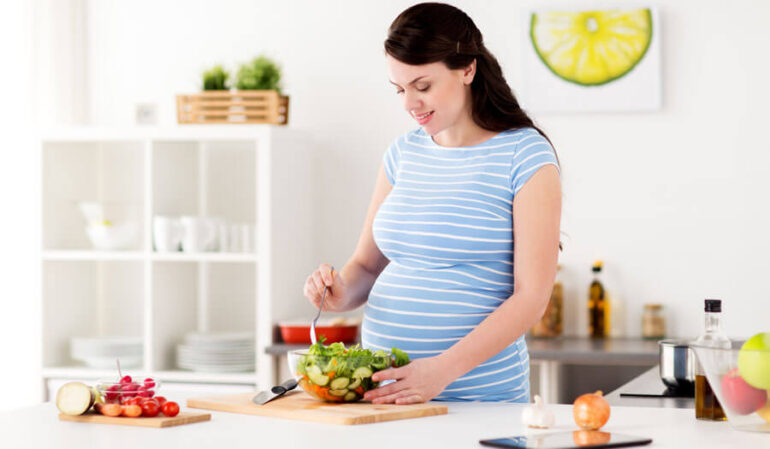Iron deficiency is a common condition during pregnancy, affecting up to 30% of pregnant women worldwide. It occurs when the body does not have enough iron to meet the increased demands of pregnancy. Iron is essential for carrying oxygen in the blood, and a deficiency can lead to a number of complications for both the mother and the fetus.
Guarding Maternal Health: Preventing Iron Deficiency in Pregnancy
Why is iron important during pregnancy?
Iron is essential in the production of hemoglobin, the protein in red blood cells that carries oxygen. During pregnancy, the mother’s blood volume increases by up to 50%. This means that she needs more red blood cells to carry oxygen to her growing baby. Iron is also important for the development of the placenta and the fetus’s brain and nervous system.
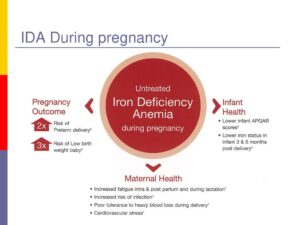
What are the risks of iron deficiency during pregnancy?
Iron deficiency during pregnancy can lead to a number of complications, including:
- Iron deficiency anemia
This is a condition in which the blood does not have enough healthy red blood cells to carry oxygen. Iron deficiency anemia can cause fatigue, shortness of breath, and dizziness. It can also increase the risk of preterm birth, low birth weight, and other adverse pregnancy outcomes.
- Preterm birth
Preterm birth is defined as birth before 37 weeks of pregnancy. Iron deficiency is a risk factor for preterm birth, especially in women who are also anemic.
- Low birth weight
Low birth weight is defined as a birth weight of less than 5 pounds, 8 ounces. Iron deficiency can restrict the growth of the fetus and lead to low birth weight.
- Increased risk of infection
Iron deficiency can impair the immune system and make pregnant women more susceptible to infection.
- Postpartum depression
Iron deficiency anemia after childbirth is a risk factor for postpartum depression.

How to prevent iron deficiency during pregnancy
The best way to prevent iron deficiency during pregnancy is to eat a healthy diet that is rich in iron-rich foods. Some good sources of iron include:
- Red meat
- Poultry
- Fish
- Beans
- Lentils
- Tofu
- Iron-fortified cereals and breads
- Dark leafy green vegetables, such as spinach and kale
- Dried fruits, such as prunes and raisins
- It is also important to take prenatal vitamins that contain iron. The recommended daily intake of iron for pregnant women is 27 milligrams.
Karihome Mama Milk for Maintaining Iron Levels During Pregnancy
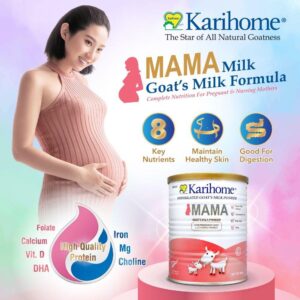
Karihome Mama Milk stands out as a comprehensive nutritional supplement designed specifically for pregnant and nursing mother. This specially formulated milk powder not only provides essential nutrients for overall maternal health but also addresses the increased need for iron during pregnancy.
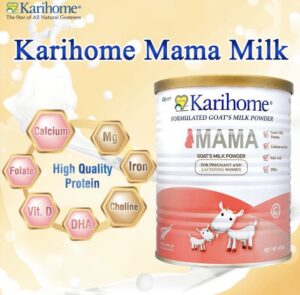
With a balanced blend of vitamins, minerals, and high-quality protein, Karihome Mama Milk is an excellent choice for mothers seeking a convenient and effective way to support their iron levels. One serving of Karihome Mama Milk provides 18 milligrams of iron, which is over 60% of the recommended daily intake for pregnant women.
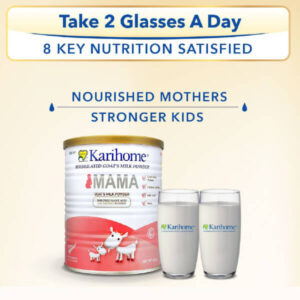
It is also a good source of other nutrients that are important for maternal and fetal health, such as calcium, folic acid, and vitamin D. Karihome Mama Milk is also easy to digest and gentle on the stomach. Goat milk protein mainly consists of A2 ß-casein, which is gentler and less allergens, which makes it a good choice for women who are lactose intolerant.
Additional tips
Here are some additional tips for preventing iron deficiency during pregnancy:
- Avoid drinking coffee and tea with meals, as these beverages can interfere with iron absorption.
- Eat foods that are rich in vitamin C, such as citrus fruits, tomatoes, and bell peppers. Vitamin C helps the body absorb iron.
- Avoid taking iron supplements at the same time as calcium supplements. Calcium can interfere with iron absorption.
- Talk to your doctor about the best way to manage your iron intake during pregnancy.
By following these tips, pregnant women can help protect their health and the health of their babies.
Conclusion
Iron deficiency is a common condition during pregnancy, but it is preventable. By eating a healthy diet and taking prenatal vitamins, pregnant women can help ensure that they are getting enough iron to meet their needs and the needs of their growing baby. Karihome Mama Milk is a convenient and nutritious way to help maintain iron levels during pregnancy.



